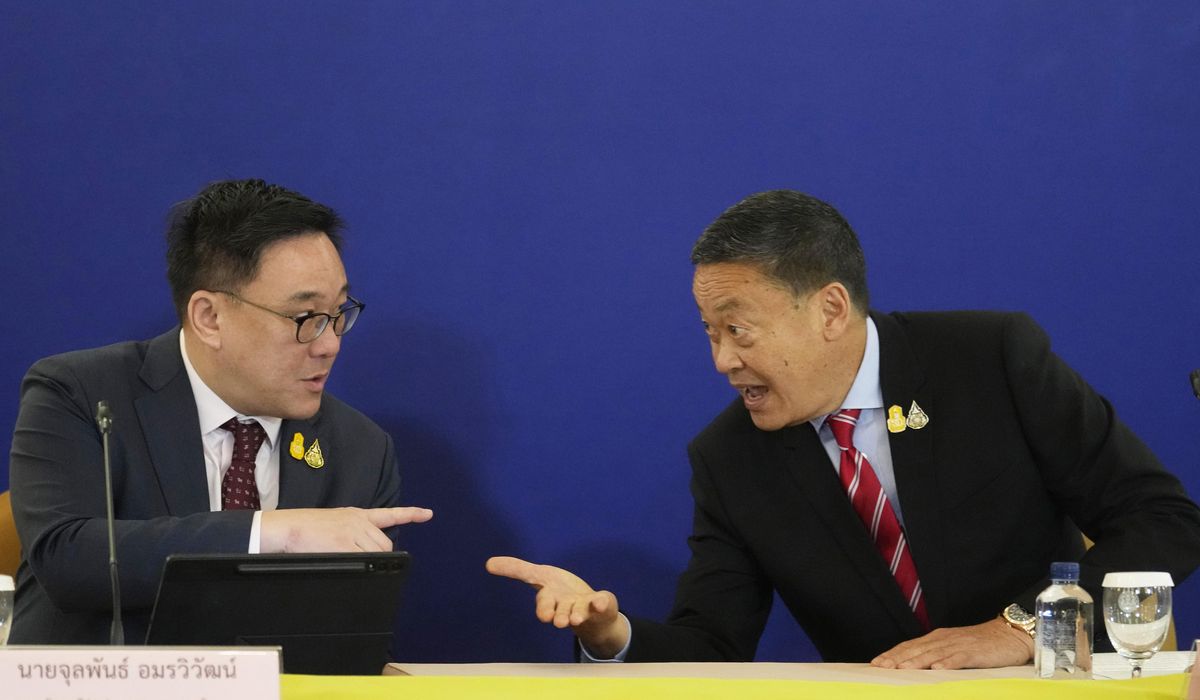


BANGKOK (AP) — Thailand’s Prime Minister Srettha Thavisin on Wednesday revealed details of his government’s plan to stimulate the economy by giving digital cash handouts of 10,000 baht ($275) to an estimated 50 million Thais for spending at their local businesses.
Srettha said at a news conference that the 500-billion-baht ($13.7-billion) plan, to be mostly funded out of the 2024 and 2025 fiscal budgets, will be rolled out in the last quarter of the year.
The stimulus and subsequent consumption are expected to boost gross domestic product growth by 1.2 to 1.6 percentage points, he said. The World Bank estimated Thailand’s year-on-year GDP growth at 1.5% in December.
Another portion of the funding will come from the state’s Bank for Agriculture and Agricultural Cooperatives, earmarked for covering payouts to about 17 million farmers.
The digital purchases will be allowed only in the recipients’ own districts, and will not be allowed for items including oil, services, and online purchases.
Srettha called the project a “life-changing policy for the people.” He expressed his disappointment that the project could not be carried out earlier but said the government needed to make it transparent and legal.
The plan, which was a major campaign promise by Srettha’s Pheu Thai party ahead of last year’s general election, had been previously criticized by economists for being an ineffective way to contribute to sustainable economic growth compared to other measures.
The ruling Pheu Thai party had also suggested digital wallet payments for all Thais 16 and older, while the current plan is limited to lower-income Thais, defined as people with yearly incomes not exceeding 840,000 baht ($23,000) and savings in financial institutions not totaling more than 500,000 baht ($13,700 ) .
The government was also criticized for initially suggesting that it would fund the plan by borrowing, which would incur a heavy public debt burden.
